
Speech sound errors are commonly observed in developing children. These errors can manifest as substituting, omitting, adding, or changing sounds, leading to difficulties in clear communication. These errors may occur frequently and consistently, causing frustration and behavioral changes in the child.
To address this issue, seeking assistance from a Speech Language Pathologist is recommended. Treatment may involve learning the proper way to produce sounds, distinguishing between different sounds, identifying correct and incorrect sounds, practicing sounds in various words, and incorporating them into longer sentences and conversations.
A language delay refers to a slower acquisition of language skills compared to peers of the same age and cognitive abilities. It may involve a delayed onset, slower progression, or a different sequence of language skill acquisition.
Receptive language disorder pertains to difficulties in understanding language, while expressive language disorder relates to challenges in verbal fluency and skillful language use.
Early intervention is crucial and can involve indirect treatment through activities for parents and caregivers, as well as direct intervention techniques like expansions, recasts, and build-ups and breakdowns. Intervention for a language disorder is tailored to the child’s specific needs, considering their current language abilities, strengths/weaknesses, and functioning in related areas. The ultimate goal is to stimulate language development, enhance communication skills, and facilitate access to academic content.
Communication devices provide a means of communication for individuals who are unable to speak. These devices empower individuals to express their desires and requirements independently, reducing their reliance on others for assistance.
Augmentative communication devices are also known as assistive communication devices. With consistent practice and training, many individuals can effectively communicate their needs and opinions using these devices. Our therapists possess specialized skills in assessing and customizing communication needs, whether through low-tech or high-tech devices.
We have expertise in various communication software and speech-generating device vendors. Some commonly preferred software and brands by our pediatric clients include: Proloquo2go, Tobii Dynavox, Compass Software, PRC, Accent Eye Gaze Technology, and SVO Power Application.
Autism spectrum disorder (ASD) encompasses various developmental disorders, such as Autistic disorder, Asperger’s, and Pervasive development disorder, with a wide range of symptoms and levels of impairment. Speech Therapy aims to optimize communication for children with ASD by focusing on verbal communication, utilizing visual vocabulary-based alternative/augmentative communication methods, or a combination of both.
Specialized language and communication training can benefit children with ASD who exhibit non-verbal yet receptive language skills, echolalia, limited vocabulary, apraxia of speech, poor eye contact, rigid thinking, trouble with turn-taking and staying on topic, and potential with communication devices.
Speech-Language Pathologists specialize in the care of children with feeding and swallowing difficulties, aiming to enhance nutrition and hydration while minimizing the risks of aspiration pneumonia, underdevelopment, and malnutrition.
When feeding therapy is advised, intervention may concentrate on strengthening mouth muscles, enhancing tongue movement, improving chewing abilities, promoting acceptance of various foods and liquids (e.g., for picky eaters or those with aversions), enhancing sucking and drinking skills, coordinating the suck-swallow-breath pattern in infants, and adjusting food textures and liquid thickness to ensure safe swallowing.
Executive function can be likened to the CEO of the brain, responsible for overseeing tasks from initial planning to final completion. When children experience difficulties with executive functioning, activities that involve planning, organization, memory, time management, and flexible thinking become challenging. These difficulties can manifest in various ways, such as struggling to keep track of time, create plans, meet deadlines, multitask, apply previously learned information, analyze ideas, seek help or additional information when needed.
Speech Language Pathologists (SLPs) offer cognitive retraining for individuals of all ages to enhance executive function, enabling children to thrive academically. This training improves productivity not only in academic settings but also at home, in extracurricular activities, and in their future employment.
This condition is often misdiagnosed and overlooked as it mimics asthma, allergies, and severe upper airway obstruction. During moments when the airway should be open, the vocal folds instead close, causing airway obstruction.
For instance, athletes may experience a sudden tightening of the airway during a run, leading to panic. This condition affects both men and women, and its exact cause is unknown. However, certain triggers have been identified, including co-existing asthma, GERD reflux, high-intensity exercise, inhaled allergens, post-nasal drip, and stress/anxiety.
Differentiating between an asthma attack and PVFM is crucial for individuals who have both conditions, as it helps determine when to use a rescue inhaler or employ breathing recovery exercises taught by a Speech-Language Pathologist.
Children are taught to observe and consider their own thoughts and feelings, as well as those of others. They also learn about the relationship between thoughts, feelings, and behaviors. If a child is struggling with social skills, individual and group sessions are available to enhance social and emotional awareness and behaviors.
Symptoms that may indicate a need for intervention include challenges with perspective taking, maintaining eye contact, interpreting facial expressions and tone of voice, frequent intrusiveness or interruptions, dominating conversations, rigid thinking, difficulties with appropriate greetings and responses, understanding sarcasm, idioms, hypothetical situations, and figurative language, poor joint attention, and trouble empathizing with others.


Dysphagia is a condition characterized by difficulty swallowing, which can cause pain during swallowing (odynophagia). Individuals with dysphagia may struggle to safely swallow liquids, foods, or saliva, and this can pose challenges in eating.
Dysphagia can arise from issues with neural or structures involved in the swallowing process. Weak tongue or cheek muscles may hinder food manipulation in the mouth, while conditions like stroke or nervous system disorders can impede the initiation or stimulation of swallowing. Additionally, weak throat muscles, often resulting from cancer surgery, may hinder the movement of food towards the stomach.
Augmentative communication devices serve as a means for individuals without a voice to express their needs and wants independently. By using these devices, individuals can reduce their reliance on others for assistance. With practice and training, many people can effectively communicate their needs and opinions. Augmentative communication devices are particularly beneficial for individuals overcoming conditions such as aphasia, head and neck cancer, neurodegenerative disorders, severe dysarthria or vocal cord injury/paralysis, severe respiratory impairment, and autism.
We have expertise in various communication software and work closely with speech-generating device vendors. Some commonly preferred software and brands by our adult clients include Tobii Dynavox Compass Software, Tobii Dynavox T-Series Devices, Lightwriter Device, PRC Accent Technologies, Lingraphica Touch Talk/All Talk, Eye Gaze Technology, and the Specialized Telecommunications Assistance Program (STAP) of Texas.
If you qualify, STAP offers government-sponsored, no-cost devices through a consultation and initial assessment by a Speech Language Pathologist. We provide one-time consultations and application assistance for eligible patients.
Cognitive-communication disorders arise from a breakdown in cognitive or brain function, leading to difficulties in communication. These disorders stem from impaired cognitive processes such as attention, memory, perception, insight, judgment, organization, orientation, language, processing speed, problem-solving, reasoning, executive functioning, metacognition, self-monitoring, and sequencing.
Signs of cognitive-communication disorders may include language expression difficulties, task completion challenges, and problem-solving issues. Seeking assessment and treatment from a Speech-Language Pathologist can be beneficial. Therapy aims to restore function if possible, compensate for deficits, and provide education to the client and their family on managing the disorder.
Aphasia is a language disorder that affects the production, comprehension, reading, and writing abilities of individuals. It is typically caused by brain injury, most commonly from a stroke, but can also develop gradually from conditions like brain tumors or degenerative diseases. The extent and location of the brain damage determine the severity of the disability.
Aphasia can range from severe, making communication nearly impossible, to mild. Treatment options include verbal language therapy and the use of communication devices to maximize communication function. Bilingual assessments are also available for evaluation.
Voice disorders can occur due to prolonged vocal misuse, overuse, abuse, trauma, or medical conditions. Symptoms of voice disorders include hoarseness, limited pitch range, pitch breaks, undesirable voice quality, breathiness, fatigue during speaking or singing, throat pain or burning sensations, and strain.
Treatment expertise includes addressing voice difficulties in professional users and individuals with medical complexities such as post-intubation/tracheostomy, stroke, head and neck cancer, Parkinson’s disease, spasmodic dysphonia, unilateral vocal cord paralysis, and respiratory conditions.
Speech-Language Pathologists are involved in the care of children of all ages who have feeding and swallowing difficulties. Our goal is to improve nutrition and hydration while preventing risks of aspiration pneumonia, underdevelopment, and malnutrition.
If feeding therapy with an SLP is recommended, the focus on intervention may include the following:
Executive function is like the CEO of the brain. It’s in charge of making sure things get done from the planning stages of the job to the final deadline. When kids have issues with executive functioning, any task that requires planning, organization, memory, time management and flexible thinking becomes a challenge.
Having issues with executive functioning makes it difficult to:
SLPs provide cognitive retraining for all ages to improve executive function in order for children to succeed academically. Training improves productivity at home and school, in extracurricular activities, and in their first job.
Vocal cord dysfunction, also known as paradoxical vocal cord motion, is a condition that often gets misdiagnosed and overlooked as it mimics asthma, allergies, and severe upper airway obstruction. During moments when the airway should be open, the vocal folds instead close, causing obstruction.
This can lead to panic, especially during activities like running. Both men and women can experience this condition, and its exact cause is unknown. However, there are several triggers, including co-existing asthma, GERD reflux, high-intensity exercise, inhaled allergens, post-nasal drip, stress/anxiety, and certain neurological conditions. It is important to differentiate between an asthma attack and vocal cord dysfunction to determine the appropriate use of rescue inhalers or breathing recovery exercises taught by a Speech-Language Pathologist.
Excessive coughing and throat clearing can lead to vocal cord injury, resulting in swelling and irritation that may alter the sound and quality of the voice. Symptoms such as a lump or burning sensation in the throat may also arise. Speech-Language Pathologists possess expertise in the anatomy and function of healthy voice use and can provide training to develop and maintain healthy vocal habits, preventing injury and voice loss. It is possible to train away the habit cough and throat clearing with their assistance.
Expiratory Muscle Strength Training (EMST) is a proven treatment program that offers advantages to individuals with swallowing, speech, voice, and respiratory disorders. This program focuses on improving the muscles involved in exhalation through targeted exercises that apply resistance during the exhalation phase of breathing. Strong exhalation muscles are crucial for effective coughing, speaking, singing, and producing long and loud utterances. EMST treatment is administered by a Speech-Language Pathologist who facilitates the program.
Adult language-based learning disabilities encompass issues with reading, writing, and spelling, leading to slower and less fluent reading and comprehension. Some adults seek assessments and treatment for dyslexia to improve their reading skills. Dyslexia primarily concerns reading problems within language-based learning disabilities, which can also involve difficulties in spoken and written language.
Adults with dyslexia face challenges mainly related to written language, while those with a broader language learning disability struggle with both spoken and written aspects. These challenges include expressing ideas clearly, learning new vocabulary, understanding instructions, recalling sequences, comprehending and retaining information, and dealing with reading, writing, and spelling difficulties.




Physical and occupational therapy services are available for both children and adults. These therapy providers offer specialized treatment programs for various conditions, including developmental delays, acute medical issues, fractures, and joint replacements. They also assist with post-hospitalization care, respiratory deficiencies, Parkinson’s disease, stroke recovery, and general rehabilitation for physical weakness or decline. Other services include diabetic rehabilitation, wound care, dementia care, airway and dysphagia treatment, feeding and oral-motor programs, ADL (Activities of Daily Living) training, and sensory motor integration. The therapists are highly experienced, nationally certified, and may provide services at your location.
Our therapy providers offer specialized treatment services to facilitate rehabilitation programs for:
Our experienced therapists are nationally certified and hold varying credentials as Certified Dementia Specialist and Certified Brain Injury Specialists. Therapy providers are able to travel to you!



The most exciting aspect about therapy with Champion is not only our commitment to our patient’s learning, but to each patient’s application of learned skills in functional environments. Community-based intervention and independent-living skills are strongly tied to individual goals as we aim to improve meaningful participation and interaction.
Community-based intervention is proven to increase motivation and productive communication patterns in children and adults with autism, acquired brain injuries, and in adults post-stroke. Patients with Dementia can also benefit from this style of service. All of our community-based therapy “field-trips” are at no additional cost to you or your loved one.
At Champion, all of our clients matter and so do their meaningful interactions with others!
